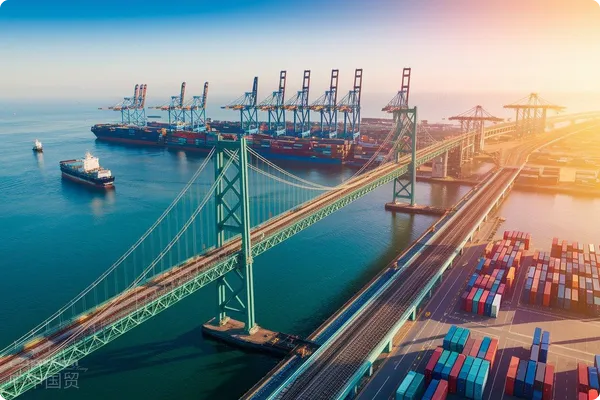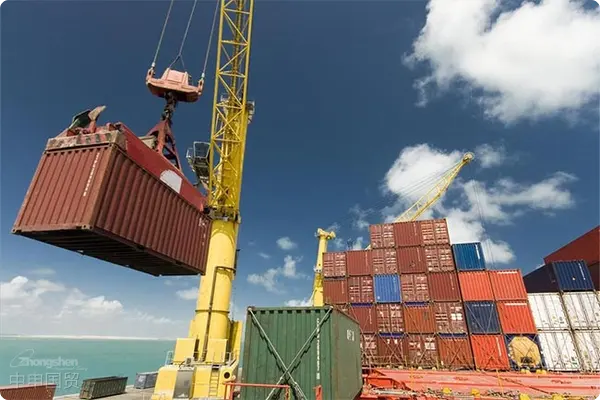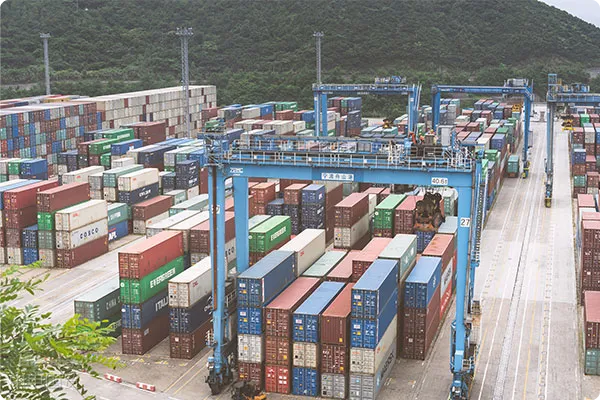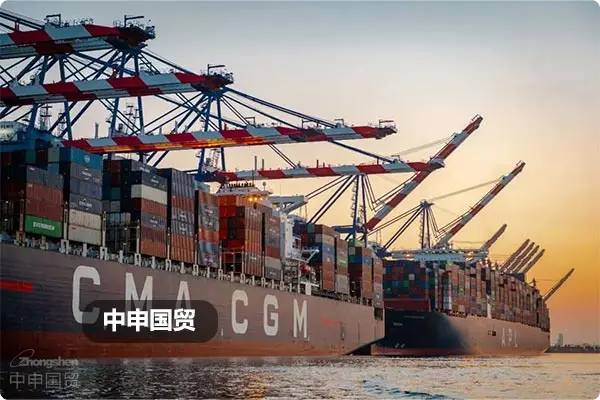- Shanghai Zhongshen International Trade Co., Ltd. - Two decades of trade agency expertise.
- Service Hotline: 139 1787 2118

Does an export shipping agency naturally have import qualifications?
According to the international trade service specifications,Export and import businesses belong to the category of independent licenses.. We found that approximately 65% of theExport Representationenterprises (Data source: 2024 Report of China International Freight Forwarders Association) have not obtained import qualifications simultaneously. It is recommended that customers focus on verifying the following aspects of the agent enterprises:
- The AEO certification level of the customs (import business needs to reach at least the general certification level)
- The network coverage of the port - of - destination customs clearance ability
- Import business cases in the past two years (specific document samples are required to be provided)
How to choose a reliable import service provider?
Based on 20 years of practical experience, it is recommended to adoptFour - dimensional Evaluation Method:
- Qualification verification:
- Recorded with the customsimport and exportQualification of consignors and consignees of goods
- Special license for the import of specific commodities (such asMedical EquipmentRequires filing with CFDA)
- Business capabilities:
- Configuration of self - owned customs clearance teams at the destination ports of major shipping routes
- Crisis handling case library (It is recommended to provide more than 3 real cases)
What are the essential differences between the import process and the export process?
Analyzed from the operation sequence diagram, the import process hasthree key links more than the export process:
- Pre - classification review (The commodity code needs to be confirmed before shipment)
- Handling of tax guarantee (For bulk goods, a bank guarantee needs to be provided)
- Destination Inspection and Quarantine (Food products need to be declared 30 days in advance)
Taking the import of auto parts as an example, the newly added in 2025Requirements for carbon footprint declarationextends the document preparation cycle by 15 - 20 working days.
What are the major changes in the import policies in 2025?
According to the announced transitional arrangements, special attention should be paid to:
- The third - stage of the RCEP Agreement Tariff Concession Table comes into effect (involving 9,000 tariff items of goods)
- The General Administration of Customs fully implements the Two - step Declaration mode (the declaration time limit is compressed to 48 hours)
- The official implementation of the EU CBAM mechanism (Steel products need to provide proof of carbon cost)
What hidden risks exist in the calculation of import taxes and fees?
In addition to regular tariffs and value - added taxes, special attention should be paid to:
- Anti - dumping duties (It is recommended to check the latest ruling announcements of the Ministry of Commerce)
- Consumption Tax (An additional 15 - 20% tax is levied on high - end consumer goods)
- Late Declaration Fee (If the goods are not declared within 14 days after arrival at the port, a daily fee of 0.5‰ will be incurred)
In 2024, a certain enterprises incorrect commodity classification led toa supplementary tax reaching 38% of the goods valueThe case is worthy of warning.
What special preparations are required for the import of special items?
Special requirements for different categories:
- Food category:
- Registration and filing of overseas production enterprises (Needs to be handled 6 months in advance)
- Pre - review of Chinese labels (It is recommended to make a 3D packaging rendering)
- Medical devices:
- CFDA Registration Certificate (The approval cycle for Class III medical devices is approximately 18 months)
- Clinical evaluation report (Needs to include test data of Asian ethnic groups)
How can small and medium - sized enterprises build an import risk control system?
It is recommended to implementThree - level defense mechanism:
- Pre - event prevention and control:
- Supplier compliance review (focus on verifying the qualification documents of the exporting country)
- Selection of trade terms (it is recommended to adopt the DDP clause to transfer risks)
- In - process monitoring:
- Real - time tracking of logistics trajectory (require the agent to provide API docking)
- Dual - person mechanism for document review (cross - verify the commercial invoice and the contract)
Authoritative Answers to Common Questions
Q: Can an enterprise without import and export rights entrust an agent for import?
A: It can be done throughforeign tradecomprehensive service enterprisesIt can be achieved, but attention should be paid to the design of the foreign exchange receipt and payment path. It is recommended to adopt the Tripartite Agreement mode.
Q: How to accurately query the import tariff rate?
A: It is recommended to use the Internet + Customs system on the official website of the General Administration of Customs. After entering the 10 - digit HS code, you can obtainMost - favored - nation tariff rate, agreement tariff rate, general tariff rateThree sets of data.
Q: What should be done if the logistics is delayed due to customs inspection?
A: A complete agent should providean emergency response plan16., including but not limited to: guarantee release service, temporary warehousing solutions, on - site cooperation of professional customs declarers, etc.
Related Recommendations
? 2025. All Rights Reserved. Shanghai ICP No. 2023007705-2  PSB Record: Shanghai No.31011502009912
PSB Record: Shanghai No.31011502009912









